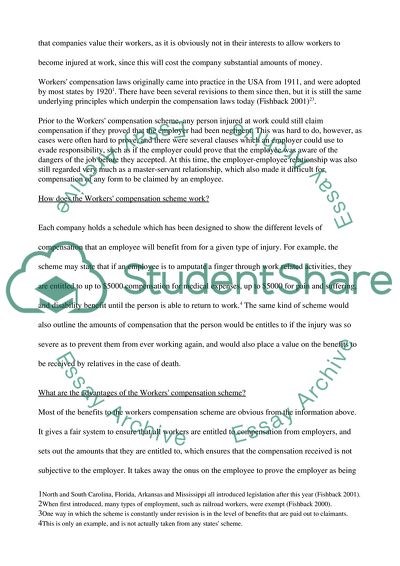Cite this document
(Workers' Compensation Assignment Example | Topics and Well Written Essays - 1500 words, n.d.)
Workers' Compensation Assignment Example | Topics and Well Written Essays - 1500 words. https://studentshare.org/human-resources/1706860-workers-compensation
Workers' Compensation Assignment Example | Topics and Well Written Essays - 1500 words. https://studentshare.org/human-resources/1706860-workers-compensation
(Workers' Compensation Assignment Example | Topics and Well Written Essays - 1500 Words)
Workers' Compensation Assignment Example | Topics and Well Written Essays - 1500 Words. https://studentshare.org/human-resources/1706860-workers-compensation.
Workers' Compensation Assignment Example | Topics and Well Written Essays - 1500 Words. https://studentshare.org/human-resources/1706860-workers-compensation.
“Workers' Compensation Assignment Example | Topics and Well Written Essays - 1500 Words”. https://studentshare.org/human-resources/1706860-workers-compensation.


